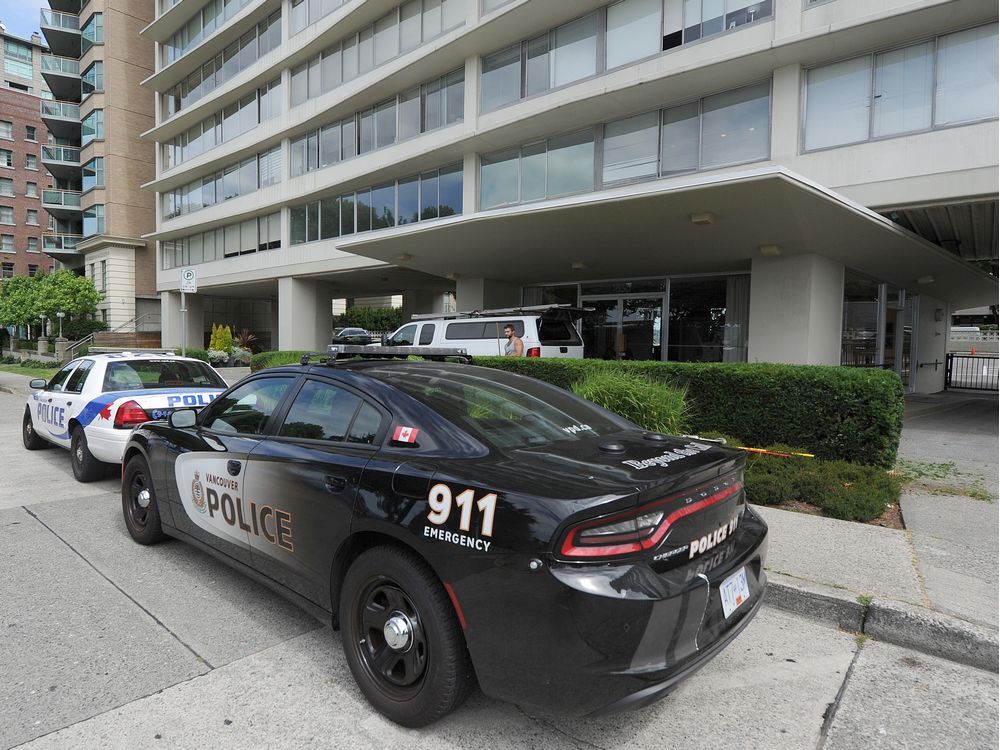Senior accused of two murders was "paranoid" prior to slayings: Crown

Credit to Author: Keith Fraser| Date: Wed, 13 Nov 2019 01:49:05 +0000
The Crown suggested on Tuesday that a Vancouver senior accused of murdering two of his friends was being “paranoid” when he claimed the two victims had drugged and raped him weeks before the slayings.
The suggestion by Crown counsel Brian MacFarlane came during his cross-examination of Leonard Landrick, 75, who has pleaded not guilty to the July 2017 second-degree murders of Sandra McInnes, 57, and Neil Croker, 51.
The two victims were found stabbed to death in their apartments in the Ocean Towers high-rise in the city’s West End neighbourhood.
McInnes had been a long-term resident of the building at 1835 Morton Ave. as well as serving on the co-op board, and Croker was the building’s caretaker. Landrick was also a long-term resident who had an active role in maintenance in the high-rise.
Landrick testified that on May 24, 2017, about seven weeks before the murders, he went up to McInnes’s apartment to socialize with her and after leaving her suite began to feel “wobbly.”
He told a B.C. Supreme Court jury that he heard voices and somebody coming out of a fire-exit door, and then didn’t remember much else until he woke up the next morning in a chair in his apartment.
Landrick believed McInnes had given him a “roofie” — a date-rape drug — rendering him unconscious, and that Croker had sexually assaulted him.
But under cross-examination Tuesday, MacFarlane pointed out that Landrick at the time was suffering from congestive heart failure, had Type 2 diabetes and a thyroid deficiency and was taking medication for all three health problems.
MacFarlane suggested it was “odd” for Landrick to “jump to the conclusion” that McInnes had given him a roofie when she had been friendly with him up to that point.
“Isn’t the more easily understandable explanation, you had a heart failure or a diabetes issue?” said MacFarlane. “Some kind of health issue, related to drinking and drug use?”
“If I had anything like that, they would have called the ambulance,” said Landrick.
“Unless you were already in your apartment,” said MacFarlane.
“I don’t know about that,” said Landrick. “When I got to the apartment, I didn’t get there on my own.”
MacFarlane said that prior to the alleged incident, there was nothing to suggest McInnes would want to assault him or commit a criminal act.
“No, but when I phoned her the next day and said to her it felt like I was drugged and raped, she laughed. Laughed,” said Landrick.
The prosecutor grilled Landrick as to why he thought Croker had raped him, with the accused replying at first that people were “saying that he was gay.”
MacFarlane said McInnes was worried at the time that Landrick was being paranoid and ranting.
“And it’s fair, because you were being paranoid at the time and ranting?” said MacFarlane.
“No, that’s not fair,” said Landrick.
“That is not paranoia?” said MacFarlane.
“Not in my understanding,” replied Landrick.
The accused, a slightly built and soft-spoken man in a suit and tie, claimed that around the time of the murders, he had gone outside for a walk in the early morning hours and then returned to find items missing or moved inside his apartment.
Landrick said he saw blood on a pair of jeans, which he disposed of. The trial has heard that a pair of jeans similar to ones found in his suite were located in a dumpster with blood matching that of the victims.
Questioned by MacFarlane as to why he got rid of the jeans, he told the jury that he felt somebody was setting him up or framing him.
“What did you think you were being framed for?” said MacFarlane.
“Well, not murder, that’s for sure,” replied the accused, who denied he threw the jeans away because he knew they were evidence of guilt. The cross-examination continues Wednesday.
CLICK HERE to report a typo.
Is there more to this story? We’d like to hear from you about this or any other stories you think we should know about. Email vantips@postmedia.com.